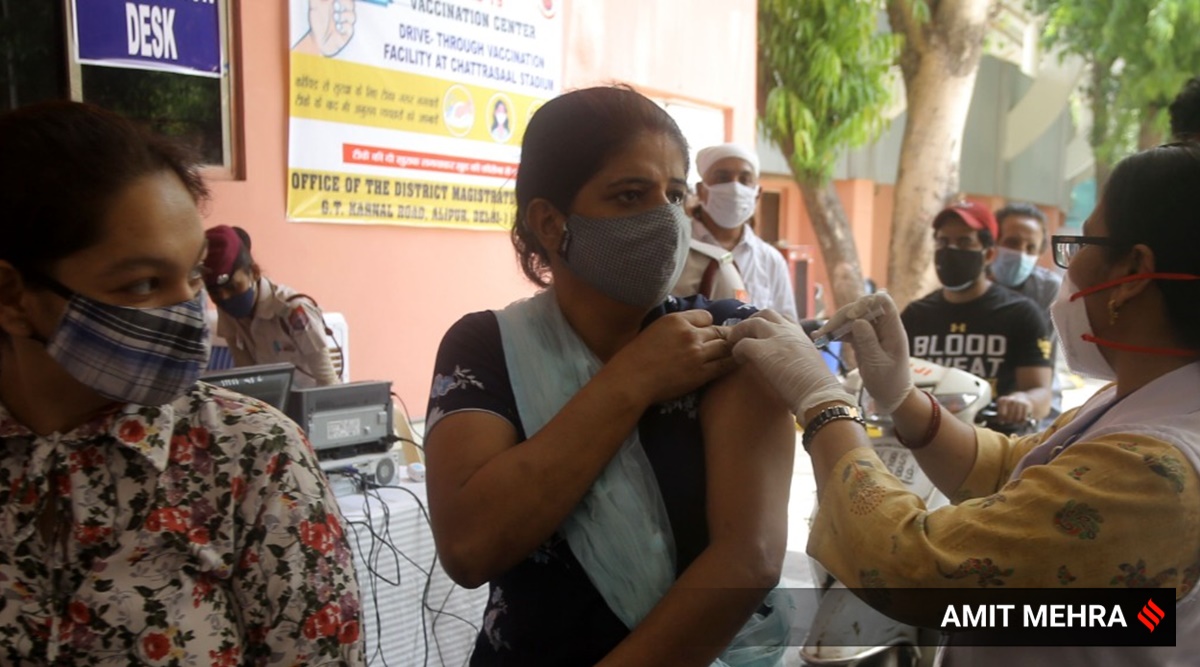The court also directed the Union government to come out with a policy for the distribution of Liposomal Amphotericin-B among mucormycosis patients.
Questioning the Centre’s policy of not prioritising the youth in the COVID-19 vaccination drive, the Delhi High Court on Tuesday said the country needs to invest in the future, and directed it to come out with a policy with regard to distribution of Liposomal Amphotericin-B among the patients of mucormycosis.
It said that the patients who are younger and “who hold promise for our nation in the future” may have to be prioritised in distribution of the particular drug in comparison with the older generation which has lived its life.
The division bench of Justices Vipin Sanghi and Jasmeet Singh said that the Centre was “sidetracking” the younger generation and instead vaccinating those in the age group of 60-90, when the second wave of COVID-19 has shown that younger people have suffered badly. The court said it is not an area where even “god will be able to help us if we don’t help ourselves”.
“I, speaking for myself, really find even this policy of vaccinating only above 45 first and now saying 18-45 when there is actually no vaccine available. Why did you have to then disclose or announce when you did not have. Did you not know you don’t have? Why did you have to make this kind of a wrong declaration,” observed Justice Sanghi.
The court said that so many young lives are being lost and the 80-year-olds are not going to carry the country forward. “They have lived their lives. We are not suggesting that we don’t care for them but if we are in this kind of crisis where we have to choose between the two, then we have to choose the younger people,” it added.
It said that the shortage of Liposomal Amphotericin-B has continued in the country for over two weeks now and a large number of fatalities are taking place across the country on account of the non-availability as well as the lack of information regarding other drugs which could be used for treatment of Black Fungus. It noted that despite best efforts by the Centre, the availability of the drug continues to remain acutely short.
“If the data placed before us is anything to go by, there is a shortage of about 66 percent even as per the present day requirement,” the bench observed, adding it has now fallen on the shoulders of the Centre to come out with a policy decision with regard to the manner in which the drug should be made available to the patients.
The court said that if all the patients suffering from the said disease cannot be treated due to non-availability of the drug in sufficient quantity, it falls on the Union government to spell out its policy with regard to priority of patients who should be administered the said drug, so that at least some lives could be saved, if not all.
“The administration of the drug to the patients who have better chances of survival may have to be prioritised. Similarly, the patients who are younger and who hold promise for our nation in the future, may have to be prioritised in comparison with the older generation which has lived its life and on whom others will not be as dependent. While observing so, we are not for a moment discounting the emotional, psychological support that the older generation provides to the families, particularly Indian families, who are so closely bonded. However, in times like these, difficult choices have to be made and should be made by the State,” it said.
However, the court also clarified that there may be a category of patients “who are serving the nation in high positions and whose safety and security may be necessary in view of the pivotal role they play in the administration of the country”. It said an exception could be carved for them.
The court also raised several questions with regard to the ongoing distribution of the drug and asked the Indian Council of Medical Research (ICMR) to lay down clear guidelines on the use of drugs being used for treatment of Black Fungus.
It earlier also noted that most of the probable sources from which the Centre was expecting to import 2.30 Lakh vials of Liposomal Amphotericin-B have failed and there are hardly any vials coming from those sources. The Centre said it is trying to procure smaller quantities of the drug from other sources now.
The court said it will take up the matter on Friday and asked the authorities to file a status report with regard to the questions raised by it.
Source: Read Full Article


